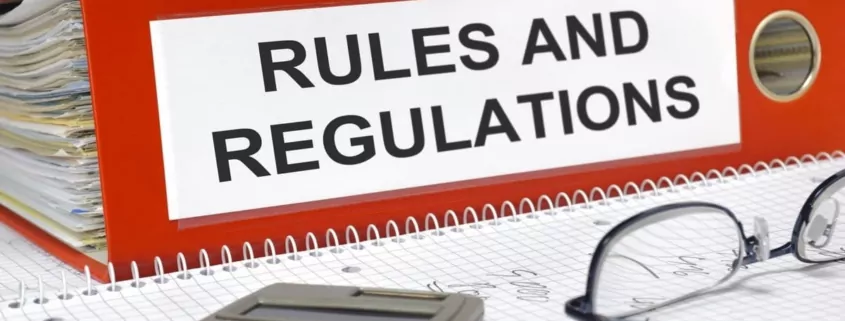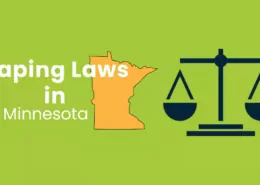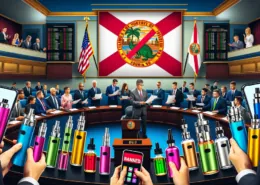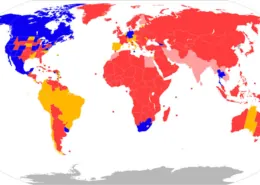US Tobacco & Vape Law Roundup: State Actions in July 2025
The regulatory landscape for tobacco and vaping products across the United States remains in a constant state of flux, with local, state, and federal bodies continually reviewing and updating legislation. July 2025 has been a particularly active month, with significant developments in states from Maine to Wisconsin. These changes reflect an ongoing effort to address public health concerns, particularly youth access to nicotine, while also navigating complex legal and economic considerations. This roundup highlights the latest proposals and approved changes impacting the tobacco and vape industry.
Maine: Pharmacies to Exit Tobacco Sales
In Augusta, Governor Janet Mills has signed a significant bill into law that will prohibit all pharmacies from selling tobacco products, a category that in Maine includes vaping products. This new restriction is set to take effect on April 1, 2026. After this date, it will be considered a civil violation for any pharmacy, or a larger retail establishment that contains a pharmacy, to sell these items. The law carries a substantial penalty, with potential fines of up to $2,000 per day for non-compliance. This move aligns Maine with a growing number of states and localities aiming to separate the sale of health products from tobacco and nicotine, reinforcing the role of pharmacies as healthcare destinations.
Massachusetts: Flavor Ban Debate Continues
In Boston, the state’s comprehensive ban on flavored tobacco and vaping products remains a central point of legislative debate. The Joint Committee on Public Health held hearings in mid-July to consider multiple bills related to the state’s stringent regulations, although no votes were taken at that time. The proposals highlight the ongoing push and pull between public health advocates and industry stakeholders:
- One bill seeks to create an exemption to the state’s flavor ban for any tobacco or vape product that successfully receives a premarket tobacco authorization (PMTA) or a modified risk order from the U.S. Food and Drug Administration (FDA). This could potentially allow certain FDA-vetted flavored products back onto the market.
- Another proposal aims to completely ban all internet sales of tobacco and nicotine products within the state, further tightening access.
- Conversely, a third bill was heard that would repeal the statewide flavored tobacco products ban entirely, reflecting ongoing opposition to the 2020 law.
The variety of these bills indicates that the conversation around flavored products in Massachusetts is far from over, with lawmakers considering paths toward both stricter control and potential relaxation based on federal oversight.
New Jersey: Localities Tighten Retail Rules and Implement Flavor Bans
New Jersey continues to see regulatory action at the local level, building on its existing statewide ban on flavored vape products, which has been in effect since 2020.
- North Bergen: The township’s new tobacco retail license law became effective on August 1st. This ordinance requires all tobacco retailers to obtain an annual local license in addition to their state license. It also mandates specific signage, prohibits product sampling, requires face-to-face sales, and ensures all tobacco and vaping products are sold in child-resistant packaging. In a pioneering move for the state, North Bergen will also ban the sale of all flavored tobacco products (including menthol cigarettes, which are not covered by the state vape flavor ban) starting January 1, 2026.
- Readington: The Readington Township Board of Health has amended its local tobacco ordinance to align more closely with state statutes, reinforcing the prohibition of selling any tobacco or vaping products to individuals under the age of 21.
Ohio: Municipalities Retain Power to Regulate Tobacco
In a significant legal decision for local governance, a Franklin County Appeals Court panel in Columbus recently affirmed a lower court’s judgment that a state law attempting to preempt Ohio cities’ regulation of tobacco products is unconstitutional. This ruling is a major victory for municipalities across the state, as it means they can continue to create and enforce their own local tobacco and vaping laws, which are often stricter than state-level regulations. This includes local flavor bans, licensing requirements, and other public health measures, ensuring that cities retain the power to address tobacco control based on their community’s specific needs.
Virginia: County Proposes Stricter Zoning for Vape and Smoke Shops
In Hanover County, the local planning board has recommended a zoning amendment that would significantly tighten restrictions on where new vape, smoke, and hemp retailers can operate. The proposed changes would require new storefronts selling these products to be located at least:
- One mile from any school.
- Half a mile from any public park.
- 2,000 feet from any existing tobacco retailer.
This measure is designed to reduce the density of these retailers and limit youth exposure. A final vote on the zoning amendment is expected to be taken later in August.
Wisconsin: Lawmakers Consider New Tax Structure for Heated Tobacco Products
In Madison, state lawmakers have introduced bills that would revise the definition of “cigarette” to create two distinct categories with different tax rates. This move aims to differentiate between traditional combustible cigarettes and newer heated tobacco products (HTPs), which heat tobacco without burning it. The proposed structure is:
- Traditional Cigarettes: Products intended for smoking by burning tobacco would continue to be taxed at the current rate of $2.52 per pack.
- Heated Tobacco Products: Products that heat tobacco without combustion (explicitly excluding vapor products) would be taxed at a lower rate of $1.26 per pack.
This proposal reflects a growing debate in many states about whether to create a “risk continuum” in taxation, where products deemed less harmful than traditional cigarettes are taxed at a lower rate to potentially encourage smokers to switch.
- Reasons for Increased Popularity of Delta-8 Usage - August 9, 2025
- Vapes and HTPs Cut Toxin Exposure by Over 90%, Study Finds - August 9, 2025
- Is It Illegal to Vape or Smoke While Driving in Michigan? - August 9, 2025









